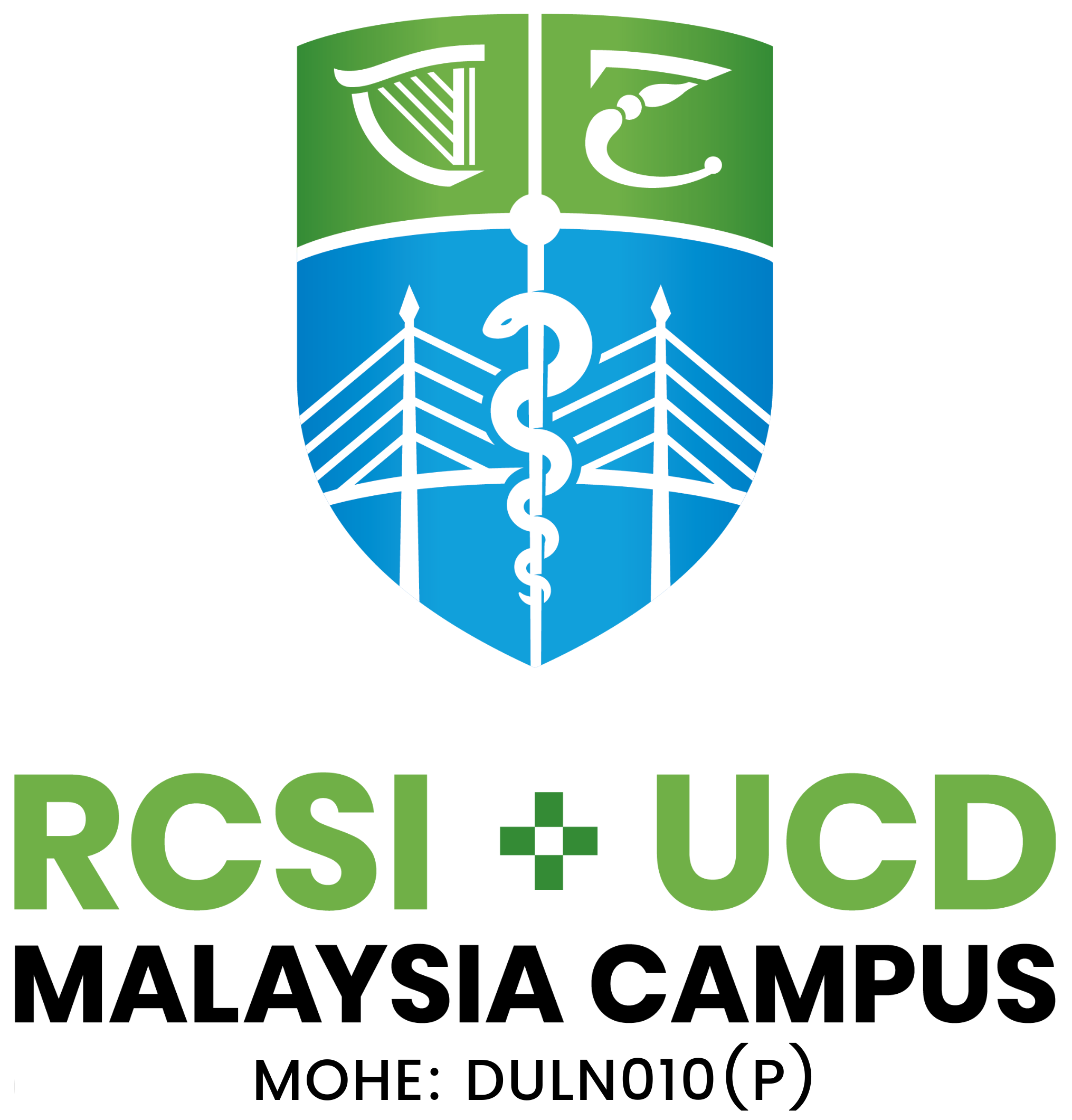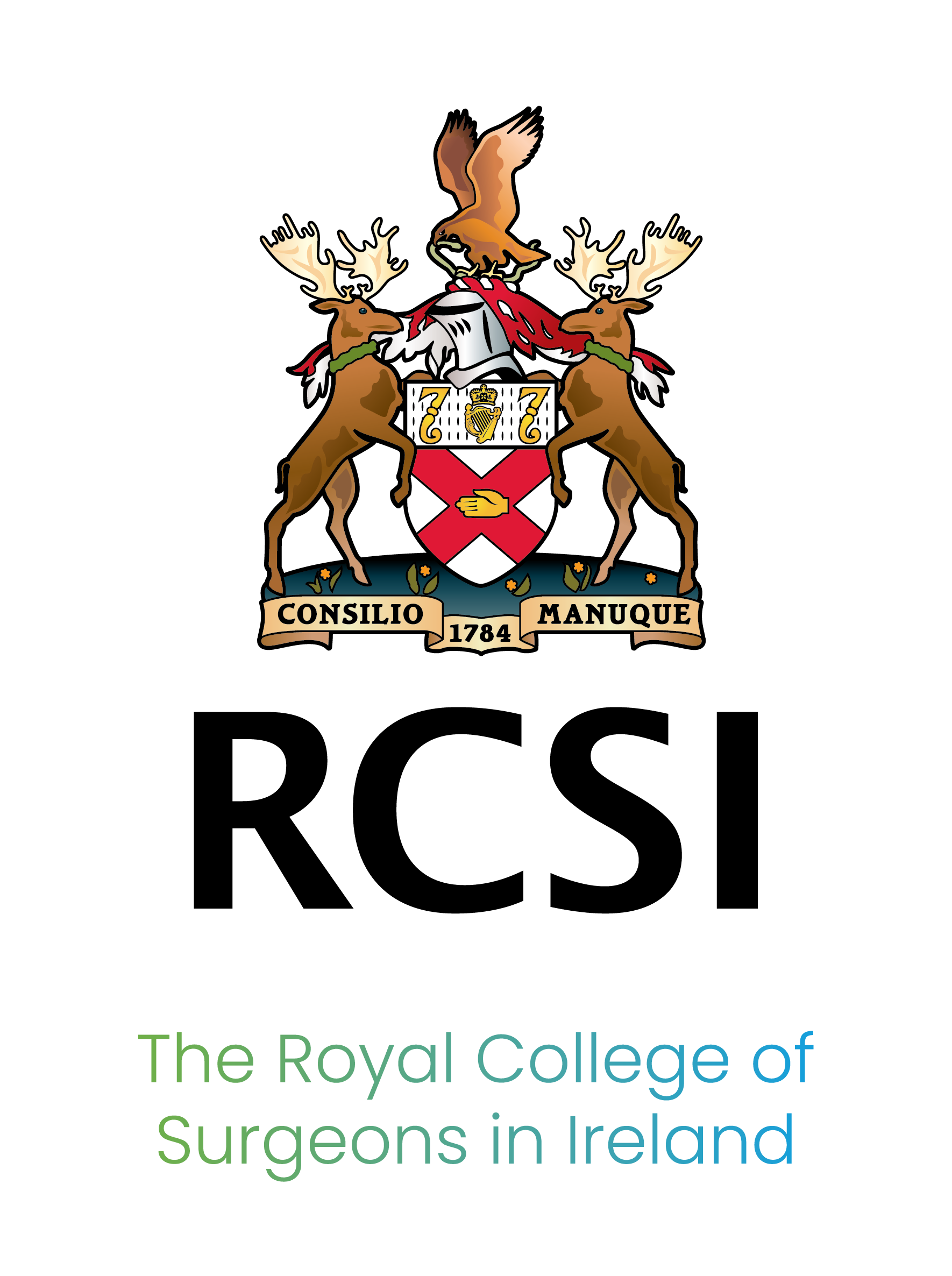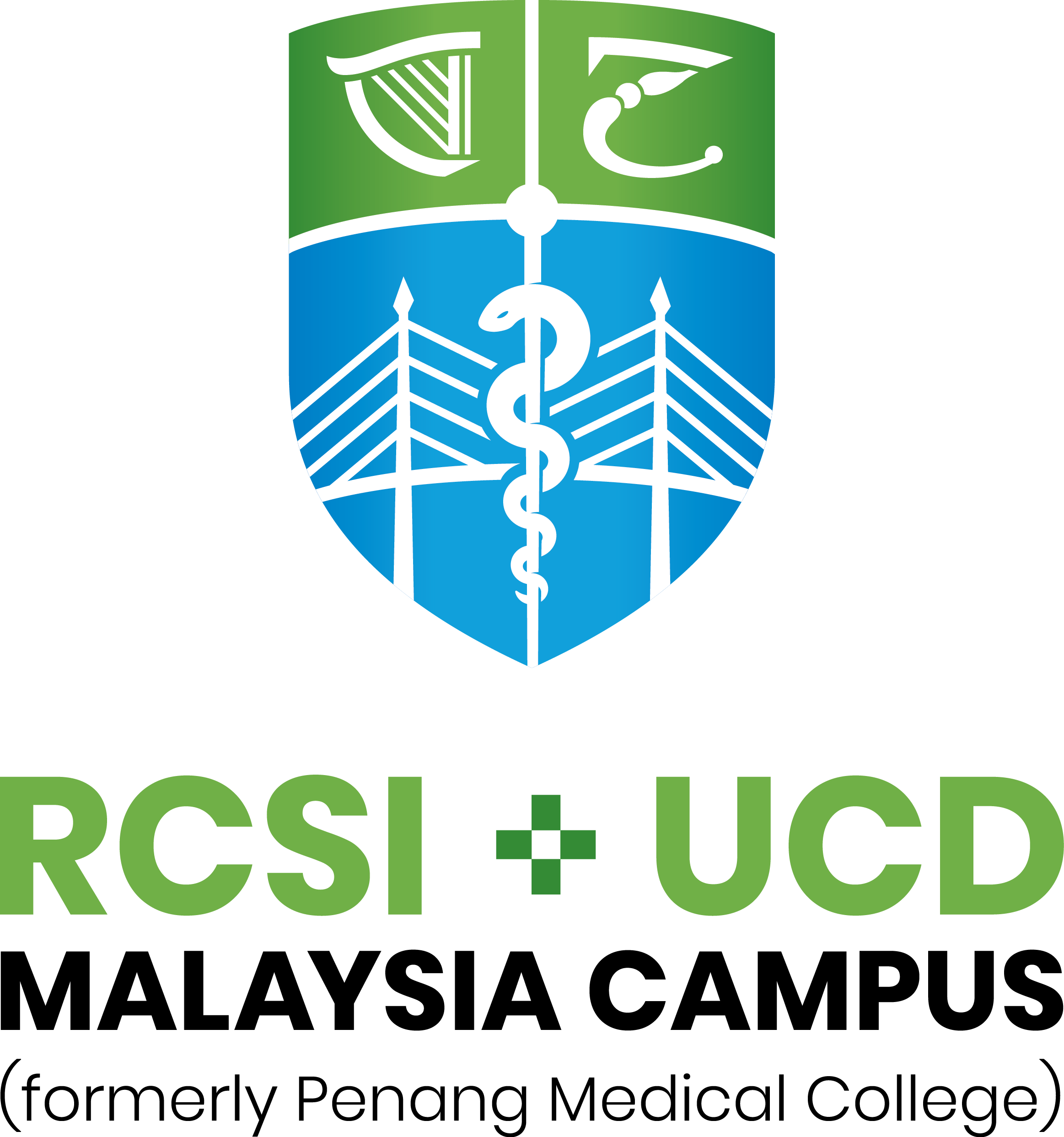15 Things Every Aspiring Doctor Should Know
Jun 29 2021

It is without a doubt that taking up a medical degree is one of the most challenging programmes. There are plenty of off-putting concerns about being a medical student, but in reality, obtaining a medical degree is packed with eye-opening experiences, with some being unexpected yet rewarding at the end of it all. Your medical journey will entail a lot of circumstances to prepare yourself for the medical world and become the doctor you aspire to be.
Though it is usual to feel daunting about putting in much hard work and remaining extremely committed to your studies or training, it is harder to fully grasp what being a medical student will feel like until you are in the class yourself. From this article, you will gain clear insights that reassure and inspire you about the prospect of studying medicine if you are intending on attending the Medicine programmes at the RCSI & UCD Malaysia Campus.
5 Things to Take Note before Applying to the Medicine programme
1. First Step on the Course of Lifelong Learning

Studying Medicine is not a sprint but a marathon. Before you become a medico and transition into a medical school, you should prepare yourself for a course of lifelong learning. Besides preparing for the examination, a medical student learns the core course material provided by the university to build a strong foundation of medical knowledge which is useful throughout the medical career.
It is an incentive to go the extra mile and beyond the fundamental volume of lecture material and hands-on clinical skills. In this ever-evolving healthcare system, future physicians and healthcare experts are encouraged by medical schools to be more self-driven in their learning. For instance, if you stumble upon a new treatment for a particular disease in your future medical career, you may find yourself asking how the disease is diagnosed, as well as understanding the latest treatments for the specific condition.
2. Ace Your Admission Interview with the Academics
After applying for a medical university according to the online admission process, you will be called for an Admissions Interview with the academics before enrolment. Be ready to explain why you wish to become a doctor by jotting down your pre-med journey. Every aspiring doctor should prepare for the interview beforehand to avoid out-of-topic descriptions or miss out on specific details about what inspires you to embark on this journey. Dive deep and research about the medical school you are interested in and make it your extra vital points to share at the interview.
Furthermore, as an admission interviewee, you should be polite throughout the admission interview. Be courteous to the people you meet throughout the physical or virtual admission interview as universities invest in future medico who is the best fit for the medical programme. You should dress up as the first impression that you create will affect how the academics perceive you during the admission interview. Besides learning effective body language through online research, you can gain more insights and ace your Medicine interview into some helpful tips and techniques from our President & CEO, Prof David Whitford via a video here. You may research effective insider tips from education advisors website on how to ace your medical interviews.
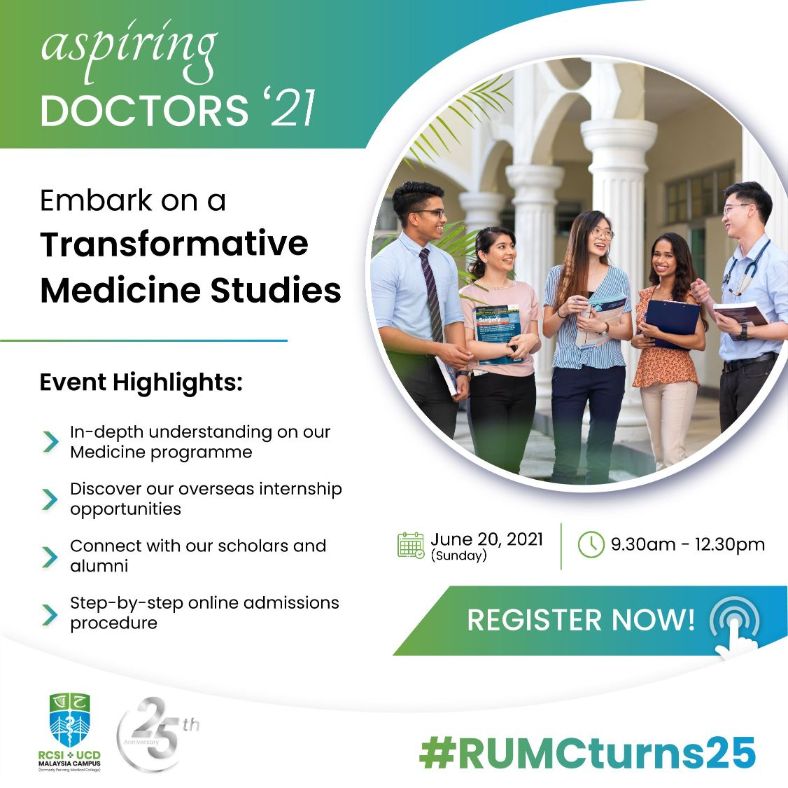
3. Aspiring Doctor Webinar
You can also attain clarity on the programmes by involving yourself in the webinars organised by the medical university. With topics ranging from the admission process to inspiring in-house student stories, you will be leaving the virtual event with extra knowledge about the medical field and the university you wish to enrol in.
Besides discovering what it is like to become a medical student, future medico will have the chance to uncover the course structure of the programme. These insightful webinars held by the university will instil confidence among future medical students in embarking on a fulfilling medical journey. Additionally, from the webinar sharing session, you can acquire more information about the requirements of various scholarship opportunities provided by the university to celebrate your pre-med academic achievements. Keep an eye on the official university website or educational fair and secure yourself a spot at such inspiring webinars.
4. You Don’t Have to be Certain of Your Career Path
It is common to not know for certain which medical speciality you should pursue before applying for medical school. Every aspiring doctor should keep an open mind and take the time to weigh all the available options. This is because medical school exposes you to different specialities that will broaden your horizon and make you see all of them from a different perspective. Even if you feel definite about pursuing a particular field amidst your medical studies, try to keep an open mind. It is usual for medical students to have a change of heart. Thus, it is better to avoid becoming too committed to a particular field too early.
Furthermore, your clinical years will grant you access to clinical rotations in hospitals that helps you to be more aware of what goes on in different medical fields. When the time comes, medicos can make an up-to-date conclusion regarding their future career progression, which is better suited to their present interests and lifestyle preferences.
5. Volunteering & Learning
Volunteering for healthcare-related tasks in your community can give you a sense of what it is like to work with patients. Besides developing patient-care experiences you may not otherwise be exposed to, it is an effective way to contribute to the greater good. Future medical students who are involved in volunteering work will get to expand their network and make friends with the same ideology.
Medical school applicants can benefit from this experience as it will be helpful when it comes to writing a personal statement. In addition, you can share your volunteering stories during the admission interview that could make you stand out among other medical school applicants.
10 Things You Need to Know while Studying Medicine
1. Preclinical & Clinical Phase
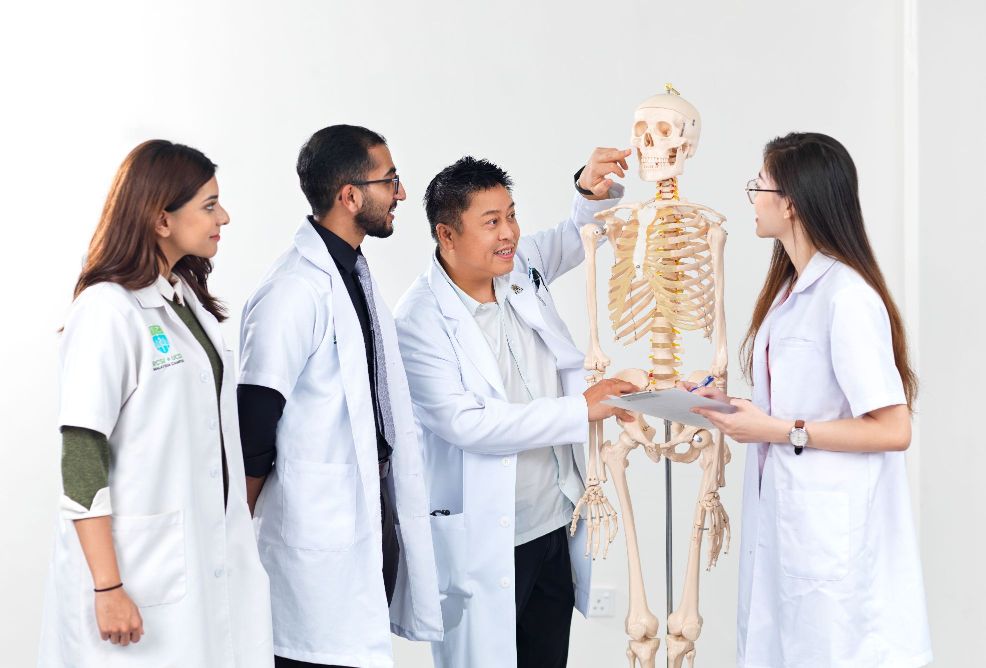
Your enrolment in medical school or university preceding the graduation of medical education is split into a pre-clinical phase and a clinical phase. The Undergraduate Medicine programme at RUMC is delivered transnationally in 2 different countries, for both pre-clinical training and clinical training respectively. The first 2.5 years of the pre-clinical phase is a combination of classroom and lab time. Medical school helps you in the field of anatomy, dissection, biochemistry, physiology, pathology, microbiology, and pharmacology to build a strong foundation in these fields. Additionally, you will be exposed to human systems and examine illnesses with treatment strategies in an interactive learning environment with patients.
Secondly, amid the following third and fourth year of the clinical phase, medical students will obtain unrivalled access to gain first-hand Medicine knowledge over rotations in clinics and hospitals. You can acquire pieces of knowledge such as physical examinations skills, clinical decision-making and supervision of diverse patients during the clinical phase. These clinical years will be giving you enough expertise in your future potential career pathways.
2. Time Management & Well-Planned Schedule
A good time management skill can balance medical studies and personal life among medical students. Beyond juggling academic and personal life, it also helps in balancing different study tasks of the day. By dividing different study materials according to the category, you can spend more time prioritizing the chapter you wish to understand more. It is a common fact that enrolling in a medical school requires you to absorb an extensive amount of material, thus a diligent study habit with a well-planned scheduled timetable is essential.
Organizing a well-planned schedule helps medicos to not lose track of time when studying. You should be disciplined about adhering to your planned schedule but be flexible enough to modify it when needed. How detailed your timetable will be depending on yourself instead of following your peers. This is because all medical students have a different time frame when it comes to social life or studying. From scheduling by hours in advance on sleep, study, meals, social activities and revision time comes down to prioritizing according to individual. For instance, break your big goals up into smaller ones and distribute them on your timetable. Instead of trying to finish everything all at once, dividing the assignment into smaller tasks and completing them one at a time. Besides, restrain yourself from joining every class as overloading your personal life with them may affect your sleep and social life.
3. Apply Study Methods That Work for You
Understand how you study well and identify how you learn effectively, as all medical students have different learning methods to absorb medical knowledge. At the beginning of pre-clinical years, you should experiment with different learning strategies including watching educational videos, making flashcards, highlighting text, drawing diagrams, and so on. Be flexible, and don’t give up on trying out what works best for you.
Every medico’s ideal study process will look a little different, thus you should not feel insecure if the learning strategies you practise are different from your classmates. In addition, involving in study groups is one of the ways to revise materials and learn effectively. New medical students can seek advice from seniors or lecturers for study tips as a reference.
4. Prepare for Major Test in Advance
There are a lot of memorizations involved in medical school. It is crucial that you should start preparing for examinations as early as possible in order to fully grasp all the necessary material. Revising the notes from class on the same day will assist in refreshing the memory of what you have learnt from your lecturer on that day itself. By doing so will ensure you stay on top of all the content and make your final revision before the examination less tense.
In addition, cramming too much content in a short period for the exam might be stressful and ineffective. Furthermore, medical students can exchange notes with other classmates and talk concepts out with them. You and your peers can make the revision more interactive by involving a speedy quiz session before going into the exam room.
5. Develop Effective Strategies in Coping Stress
Hobbies and relaxation are good for handling stress among medical students since medical school is one of the most rigorous educational paths out there. You should not neglect your social life and remind yourself to make time for friends, as it can be easy to get buried in your studies. Developing hobbies or interests outside of medical school such as sports activities, music, arts and crafts, meditation, or yoga will bring balance to your academic and social life. These activities relieve stress that leads to a more productive study session and a healthier life balance.
Besides, exploring different options of activities and learning new hobbies can lead to a pleasant surprise as you will find yourself engaged in an activity or passion that you never imagined. The new hobby or passion will provide the momentum that allows you to sustain the life balance throughout your medical studies, besides pushing you to finish up a revision before engaging in the fun activities of your choice.
6. Seek Help from Student Ambassadors & Lecturers

A quality medical school fully anticipates that medical students will need some help because asking for help is not a sign of weakness. For instance, students can ask for study tips or other resources from the student ambassadors throughout your Medicine programme. This support system will effectively help you when you find yourself struggling academically or socially.
Furthermore, if you are having difficulties understanding a class, get to know your lecturers or professors during their office hours. You can seek their assistance in helping you to gain clarification on tricky materials they discussed previously in the class. Meeting them and asking questions during their office hours can improve your understanding of a particular subject and its overall grade.
7. Practicing Medicine Is a Team Sport
Medical schools or universities are generally very cooperative rather than competitive. The environment is less competition-friendly and more collaboration-friendly than expected by many aspiring doctors before enrolling in the Medicine programme. A medical school that prioritizes a seamless experience for medical students will recognize medical studies as a team sport and enthusiastically encourage teamwork among its students.
From the corporation among medicos in studies, you are likely to make wonderful yet lifelong friendships within your medical class. Make medical friends at your own pace and spend productive time with people you meet in the medical university. Form or join a study group and involve in light-hearted discussions about the morning lectures or practical. It is an efficient method to refresh your memory on the subject covered by the lecturer in the class earlier.
8. Being Compassion & Build Connection with Patients
Compassion should be instilled and must continue to put into practice throughout your medical career in serving patients who cope with an illness or condition. Besides being compassionate to medical staff, you should remember the human aspect and practice compassion on the patients you will be engaged with during your clinical years. Build a good patient-physician relationship by getting to know them and converse with your patient.
Listen attentively to what your patients say and request. By getting to know the patients more intimately, the patient’s disease process will stick in your mind more clearly for future patient interactions. Besides making patients feel satisfied with your care, treating them with compassion and patience will provide better patient outcomes. Patients who undergo compassionate care will have better adherence to prescribed treatment and recommendations, hence a better patient outcome and fewer malpractice claims.
9. Don’t Neglect Your Physical Health
Cultivating healthy habits, such as eating a balanced nutritious diet, participating in physical activity, and having a good sleep schedule, are necessary for succeeding throughout your medical journey in the long run. Medicine has a noble custom of self-sacrifice and prioritizes the needs of patients. However, by giving the best service for patients in peak condition, one should be staying on top of wellness by getting enough rest and developing hobbies.
For example, a night of adequate sleep will affect your overall performance during your clinical years or horsemanship. Hence, looking after yourself is an approach to look after other patients efficiently too.
10. Have Fun

You are encouraged to experience the full spectrum of social and cultural aspects of your life at medical university through clubs and societies in addition to your medical studies. Explore the clubs or societies that the medical school or university offers and join the one that catches your attention.
Furthermore, visiting your family and friends, or planning a short trip can give you the chance to unwind and energize yourself, besides making your university life an unforgettable one.
In truth, the pathway of your medical journey will be filled with memorable experiences that are challenging yet surprising and rewarding. Your dedication and hard work will push you to become the doctor you aspire to be. We hope that this article will bring out the confidence in you and take up the challenge to become a medical student. Take a look here at all of our all-encompassing resources and begin your journey in Medicine at the RCSI & UCD Malaysia Campus.
